Blockchain
Hong Kong’s Securities Association Tips Authorities On Crypto Self-Regulation

The Hong Kong Securities and Futures Professional Association (HKSFPA) has recommended the creation of an independent self-governing organization for crypto regulation among others.
In an April 22 release, the body tipped self-regulation for the securities and futures industry, asset management, and cryptocurrencies. According to the statement, to boost the overall economic capability of the region, a form of crypto self-regulation is needed.
Comparing the proposal to other countries, the body added that jurisdictions that develop at a fast pace have some form of semi-official industry regulation to focus on development.
“The Association has discovered that many economically developed regions in the world, including my country, have established statutory semi-official industry self-regulatory institutions to focus on industry development and maintenance of market ecology. Therefore, the Association believes that Hong Kong can refer to a similar approach…”
Potential Market Utility
Per the release, the body focuses on the development of market structure and crypto regulation. If a sector becomes partially self-regulatory, some flaws will be detected internally between companies before getting to the financial regulator giving it an all-round flavor.
Also, the financial regulator will not be overburdened making it function better to protect investors in the market. This will promote a healthy competitive ecology through multiple proposed models. The body rolled out four methods for authorities to throw more light.
“The independent member self-regulatory organization model uses two methods to foster a competitive securities market: first, accelerate business focus, relieve some of the regulatory responsibilities of stock exchanges and regulatory agencies, make it more competitive, and promote securities trading can focus on business development..”
Crypto Firms Involved in Regulation
Stakeholders will be responsible for business conduct relating to adverts, a certain corporate governance level, and positioning the jurisdictions globally. In recent months, global regulators have ramped up efforts to protect investors with the increase of bad actors in the space.
These regulations rolled out by authorities are sometimes described as market stifling but an approach driven by participants will aid the development of the sector.
Also Read: Cardano Foundation Debut PRAGMA to Drive Open-Source Project Development
The presented content may include the personal opinion of the author and is subject to market condition. Do your market research before investing in cryptocurrencies. The author or the publication does not hold any responsibility for your personal financial loss.
Blockchain
Blockchain in the Ballot Box? NY Assembly Considers Tech to Fight Election Fraud


New York State may soon explore the application of blockchain technology in its electoral processes. Assemblyman Clyde Vanel has introduced a bill aimed at assessing how blockchain can support election transparency and reduce voter fraud.
The initiative comes at a time when blockchain adoption is gaining traction across the US under the new presidential administration.
Blockchain For Delivering ‘Uncensored Truth’
Vanel’s bill, submitted to the Assembly Election Law Committee, tasks the New York State Board of Elections with evaluating on-chain systems as tools for delivering what he terms “uncensored truth” in democratic processes. If approved, the Board will examine similar initiatives in other states and produce a comprehensive report within 12 months.
While the proposal is currently under committee review, it must pass through several legislative stages—including Assembly and Senate votes—before reaching the Governor’s desk for final approval. This marks the fifth version of Vanel’s election-focused blockchain legislation since 2017, none of which have yet become law.
Meanwhile, New York State has increasingly engaged with blockchain and cryptocurrency policy. In 2023, the New York State Cryptocurrency and Blockchain Study Task Force was launched to investigate the environmental and economic impacts of digital assets.
New York also pioneered regulatory frameworks for crypto companies with the introduction of the BitLicense in 2015 by former Department of Financial Services Superintendent Benjamin Lawsky.
Growing US Involvement With Crypto Amid Administration Shift
Interest in digital assets has grown since President Trump’s re-election, which included a March executive order advocating for the development of a Strategic Bitcoin Reserve.
In response, over 15 US states have moved to draft legislation supporting public investment in Bitcoin, with Arizona and Utah initially leading the effort. However, Utah later removed the Bitcoin provision from its proposed bill.
Additionally, lawmakers across state lines are examining various ways blockchain can support public infrastructure and government transparency. From digital identity verification to immutable public records, blockchain’s potential applications continue to be tested in pilot programs nationwide.
In the electoral space, blockchain’s decentralized structure could offer an added layer of protection against tampering and misinformation, particularly in contentious or high-turnout elections.
Should New York proceed with this evaluation, the outcome could influence broader efforts to digitize and secure voting systems. While critics may question blockchain’s scalability or voter accessibility, supporters argue it offers a tamper-resistant, auditable solution well-suited for modern governance.
Vanel’s legislation could lay the groundwork for a more technologically integrated electoral process that balances innovation with security.
If passed and successfully implemented, New York’s blockchain election report could serve as a reference point for other states considering similar measures, potentially setting the stage for a nationwide shift in how democratic systems utilize emerging technologies.
Featured image created with DALL-E, Chart from TradingView

Editorial Process for bitcoinist is centered on delivering thoroughly researched, accurate, and unbiased content. We uphold strict sourcing standards, and each page undergoes diligent review by our team of top technology experts and seasoned editors. This process ensures the integrity, relevance, and value of our content for our readers.
Blockchain
Trump Administration Push for Blockchain-Powered USAID Overhaul—Here’s What Could Change
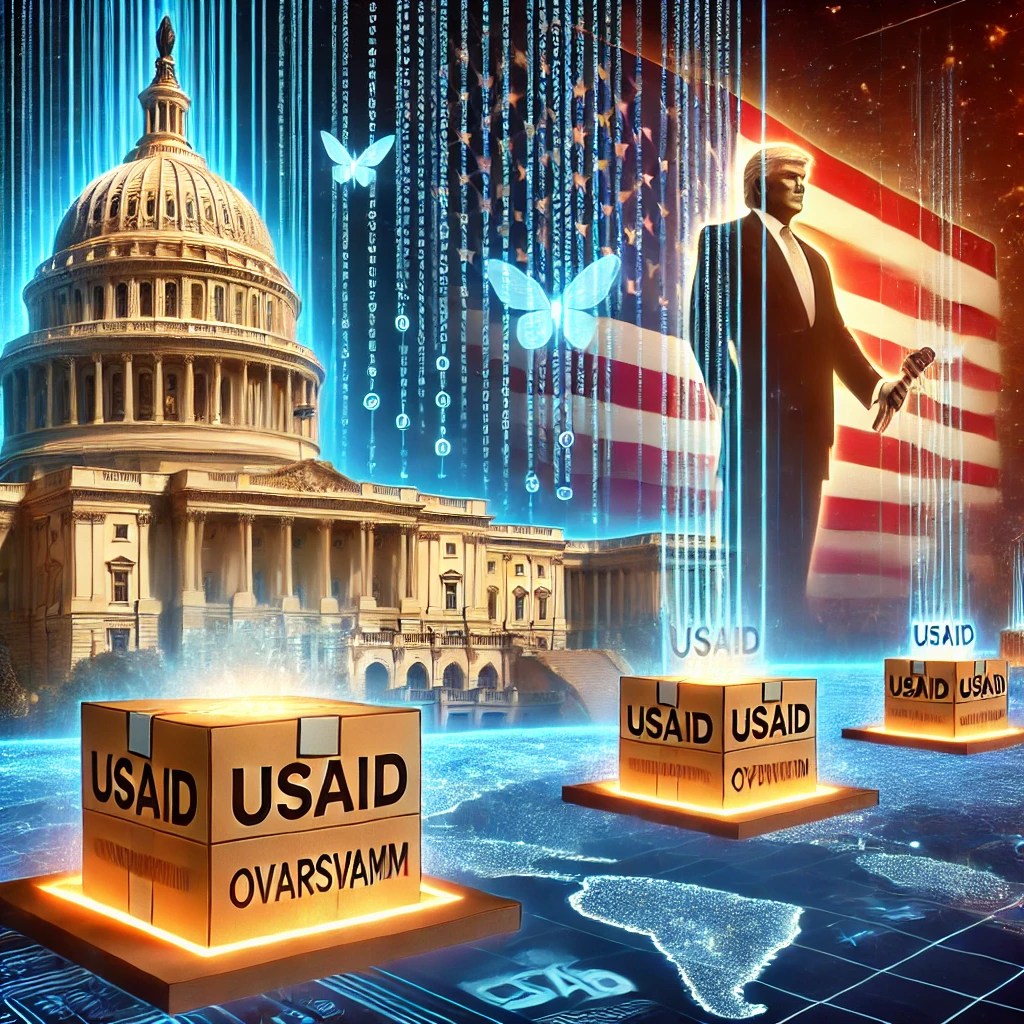

A newly surfaced proposal concerning blockchain is now circulating within the US State Department hinting at a potential shift in how the United States Agency for International Development (USAID) operates.
Under a set of recommendations backed by Trump administration officials and linked to the Elon Musk-led DOGE government efficiency unit, the agency may begin utilizing blockchain technology to enhance transparency and security in foreign aid disbursement.
Adopting Blockchain in Foreign Aid Reform
According to a draft document obtained by Politico, blockchain integration is being considered as part of a broader effort to modernize and restructure USAID’s procurement processes.
The proposal outlines that all aid distributions could be tracked using blockchain to “ensure accountability,” “reduce inefficiencies,” and allow implementing partners “greater flexibility.”
Although the proposal doesn’t clarify whether a public, private, or hybrid blockchain system would be used, it emphasizes the benefits of “secure and traceable” fund flows for international aid programs.
Meanwhile, USAID, the US agency responsible for administering foreign development assistance, has faced criticism in recent years over perceived inefficiencies and spending priorities.
The proposal aligns with ongoing efforts from the Trump camp to realign foreign aid programs with national strategic interests. It describes current aid structures as too “expansive and disorganized,” urging a shift toward focused initiatives tied to measurable outcomes in regions critical to US interests. The document wrote:
A better approach would be to foster peace and stability in regions critical to U.S. interests, catalyze economic opportunities that support American businesses and consumers, and mitigate global threats such as pandemic diseases.
Potential Restructuring and Strategic Realignment
Alongside blockchain adoption, the document proposes renaming USAID to the “U.S. Agency for International Humanitarian Assistance (IHA)” and moving the agency under the direct control of the State Department.
Areas of focus would include global health, food security, and disaster response, with an emphasis on reducing politically oriented programs and streamlining operations.
The recommendations follow past efforts by the Trump administration to limit USAID funding and staff, moves that were met with legal pushback and public criticism.
While the document reflects a serious policy proposal, it does not yet represent formal government action. The proposal acknowledges that some aspects would require congressional approval and legislative changes.
It is also unclear whether Secretary of State Marco Rubio or other senior officials within the current administration have reviewed or approved the recommendations.
Still, the introduction of blockchain as a transparency mechanism signals a growing interest in applying emerging technologies to government operations—an area of focus that may continue regardless of future political leadership.
Featured image created with DALL-E, Chart from TradingView

Editorial Process for bitcoinist is centered on delivering thoroughly researched, accurate, and unbiased content. We uphold strict sourcing standards, and each page undergoes diligent review by our team of top technology experts and seasoned editors. This process ensures the integrity, relevance, and value of our content for our readers.
Blockchain
Ethena Labs and Securitize to launch Converge, a new blockchain for DeFi


- Ethena Labs and Securitize are joining forces to launch Converge, a new blockchain for decentralized finance and tokenized assets.
- Converge will be Ethereum Virtual Machine-compatible and serve both retail and institutional DeFi.
- ENA price rose 5% to change hands above $0.38 following the announcement
Ethena Labs and Securitize are teaming up on a venture that will see the crypto projects unveil Converge, a new blockchain built for tokenized assets and decentralized finance.
Announced on Mar. 17, Converge will be a custom-built, Ethereum-compatible blockchain. The developers envision a platform that will cater to both everyday investors and deep-pocketed institutional players.
Per a blog post introducing the new blockchain, the anticipated launch date is Q2 2025.
Ethena, Securitize unveil Converge
According to Ethena Labs, Converge is a blockchain platform designed to bridge the gap between traditional finance and DeFi.
The technology behind the EVM-compatible chain will allow users to leverage user-friendly decentralized applications for retail investors. Converge will also offer a suite of top tools aimed at institutional investors.
Both Ethena Labs and Securitize plan to tap into the new blockchain to advance the DeFi and asset tokenization ecosystem. In this case, the partnership will see Ethena bring its burgeoning DeFi to Converge.
Securitize will also revamp its traction in the real-world asset (RWA) tokenization space. With nearly $2 billion minted, Securitize stands out as one of the top platforms championing the growth of tokenized assets.
Converge’s unveiling will bring an EVM-compatible settlement layer, driving new adoption for stablecoins and tokenized assets.
“We’re developing Converge to fill a clear gap in the market as the go-to settlement layer for institutional-grade DeFi and tokenized assets,” Guy Young, founder of Ethena Labs, said in a statement.
According to Young, “storage and settlement of stablecoins and tokenized assets” is set to be a massive opportunity in the coming years.
Stablecoins, blockchains and exchanges are a “holy trinity of crypto protocols” the Ethena Labs founder posted on X.
Further comments came from Carlos Domingo, the co-founder and CEO of Securitize. He noted:
“By combining Ethena’s innovation in DeFi with Securitize’s leadership in tokenizing real-world assets, Converge sets a new standard for how institutions can confidently engage with on-chain financial markets.”
Converge’s initial launch partners
The two firms will look to advance Converge via key industry collaborations. Helping the cause are initial launch partners, including Pendle, Aave Labs (via its Horizon project), Morpho, Ethereal and Maple Finance.
Converge’s RWA traction will also benefit from custodial support from Anchorage, Copper, Fireblocks and Zodia among other institutional-grade custody providers.
Also key will be interoperability partners LayerZero and Wormhole. Meanwhile, Converge will tap into oracle support from Pyth Network and RedStone.
Furthermore, Converge will use Ethena’s native governance token ENA for staking and security. The latter will tap into a permissioned validator set. The USDe and USTb stablecoins will power network transactions as gas tokens.
The news saw the ENA token jump more than 5% to trade above $0.38.
-
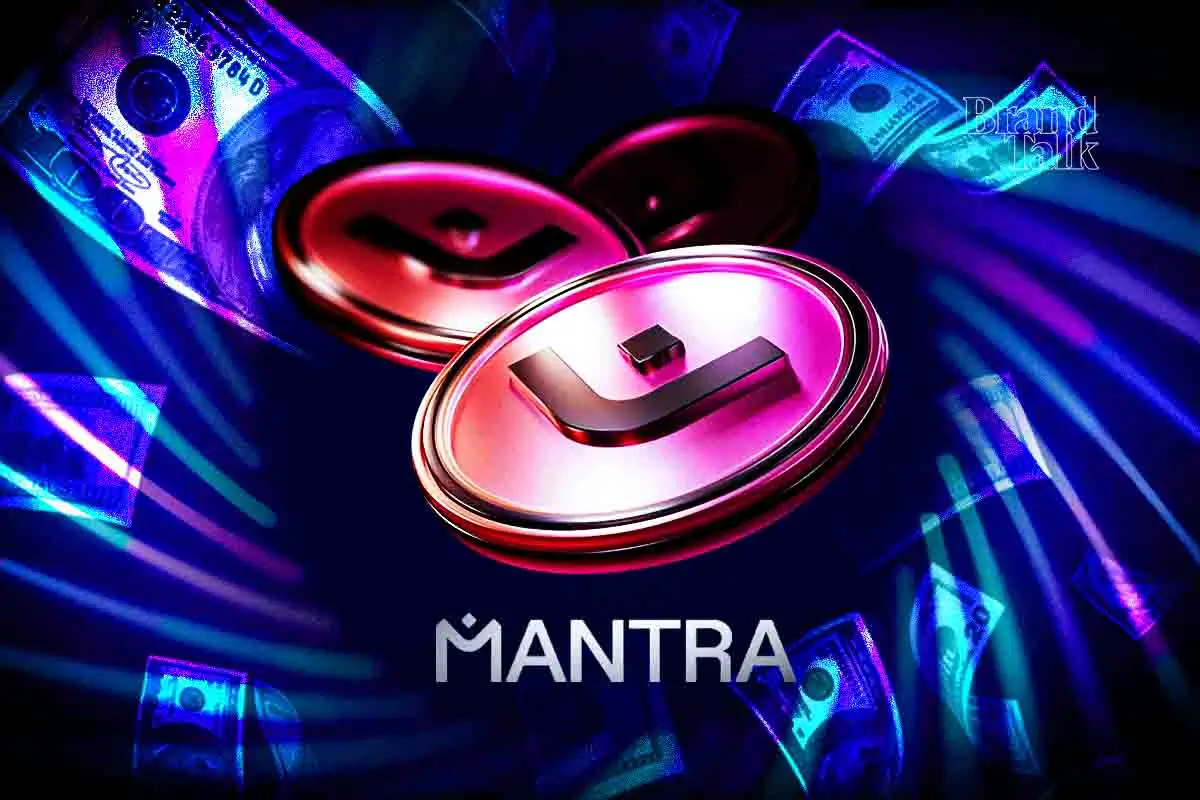
 Altcoin15 hours ago
Altcoin15 hours agoMantra Team Responds As The OM Token Price Crashes Over 80% In 24 Hours
-
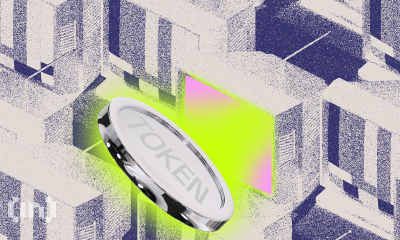
 Market19 hours ago
Market19 hours ago3 Token Unlocks for This Week: TRUMP, STRK, ZKJ
-

 Market23 hours ago
Market23 hours agoFARTCOIN Is Overbought After 250% Rally – Is the Bull Run Over?
-
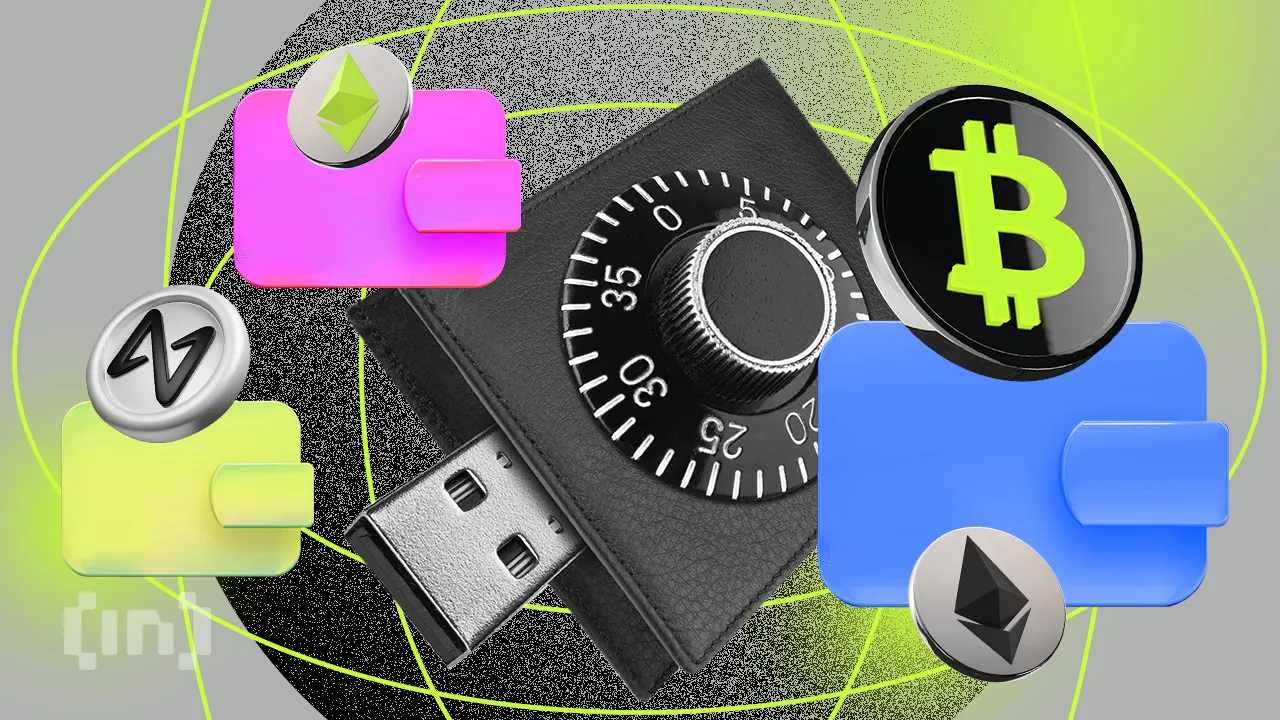
 Market20 hours ago
Market20 hours agoHackers are Targeting Atomic and Exodus Wallets
-

 Altcoin18 hours ago
Altcoin18 hours agoEthereum Price Eyes Rally To $4,800 After Breaking Key Resistance
-

 Market22 hours ago
Market22 hours agoEthereum’s Buterin Criticizes Pump.Fun for Bad Social Philosophy
-

 Bitcoin21 hours ago
Bitcoin21 hours agoNew Bill Pushes Bitcoin Miners to Invest in Clean Energy
-

 Bitcoin20 hours ago
Bitcoin20 hours agoBitcoin STH MVRV Climbs To 0.90, Is A Price Rebound On?




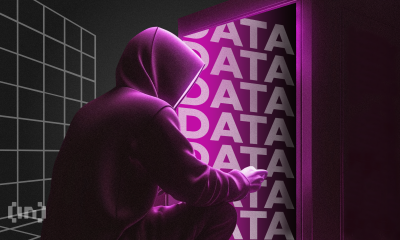










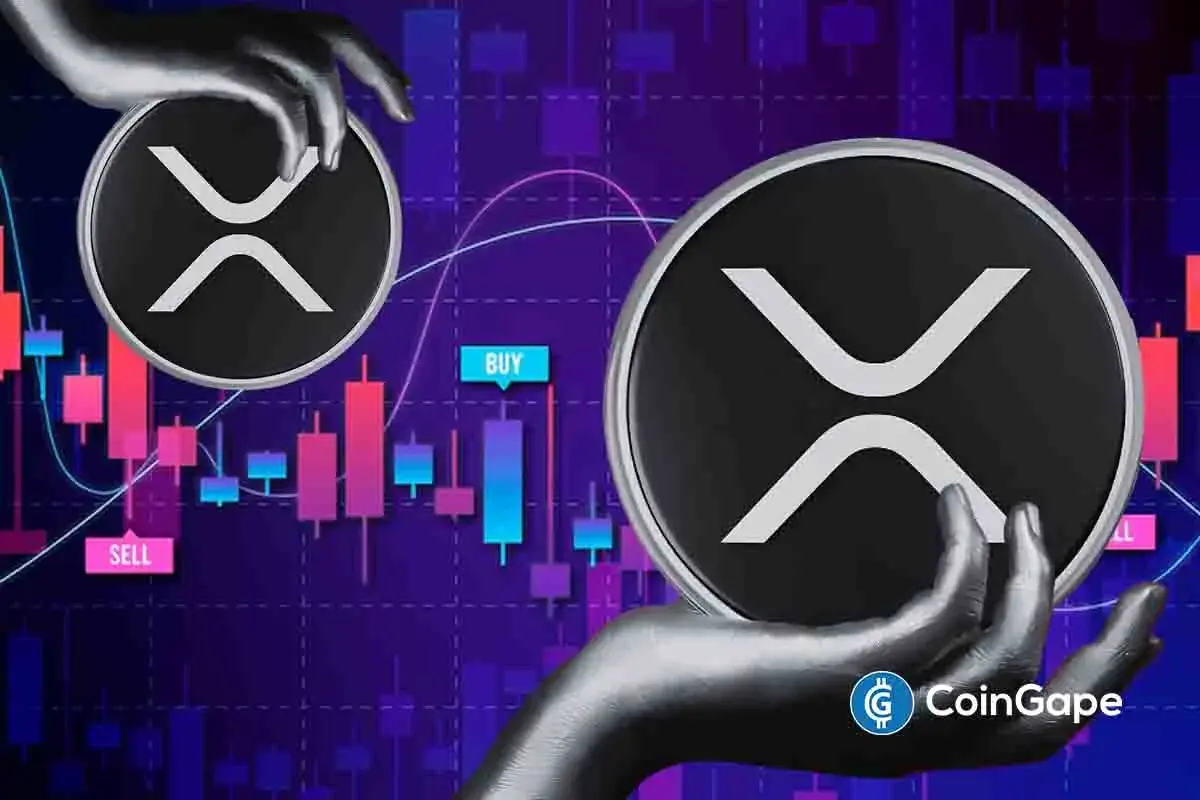








✓ Share: